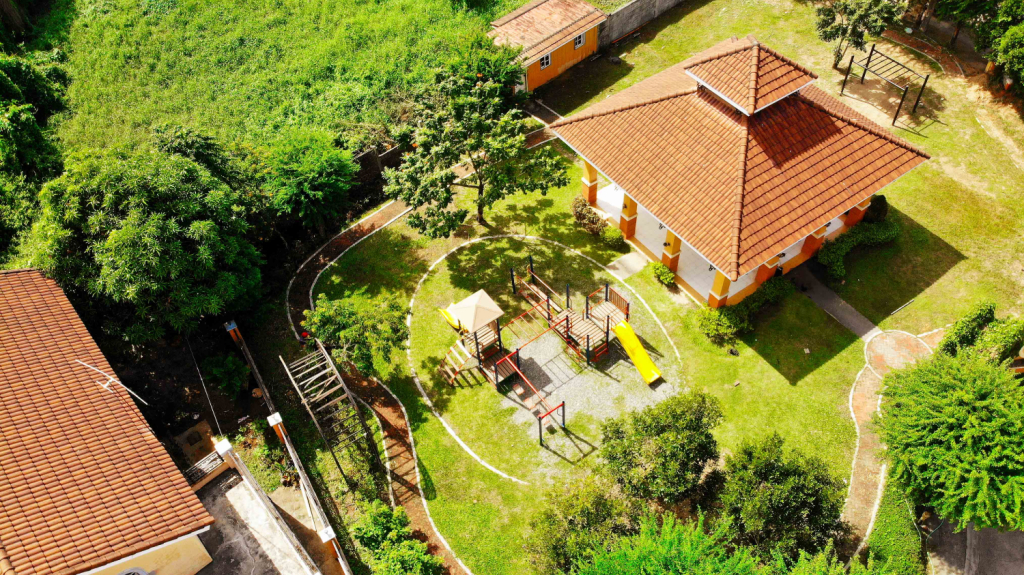Why Raising Kids in a Suburban Area Might be Better

Cities are great places to live. They’re vibrant, exciting, and full of opportunities for both young professionals and families with children. But there are also some negatives that come with living in a city: higher crime rates, more stressful commutes, and less access to medical services (among other things).
In this article, we’ll explore the pros and cons of raising kids in a suburban vs urban area so you can make an informed decision about where to raise your family.
Benefits of Moving to the Suburbs for Raising Children
When it comes to raising kids, there are a lot of options. In fact, there are so many that it can be overwhelming. There are benefits to moving to the suburbs and there are advantages to staying in the city. The decision of where you’re going to raise kids is an important one and should not be taken lightly.
Less stressful commuting
A big part of your stress may be the commute. If you’re a parent stuck in traffic, this is definitely going to be true for you. Your kids are likely stressed as well, especially younger kids who rely on their parents to get them to school and daycare on time. They don’t have an excuse for being late.
Commuting can also take a toll on spouses, who may find themselves having less and less quality time together because they’re both so busy with work. Living in a sub-urban area usually benefits homeowners with walking distance around its sub-urban environment.
The stress of commuting doesn’t just affect people; it affects cars too: new cars bought specifically for long commutes lose value much faster than regular ones do; fancy cars are particularly susceptible here because people often buy them solely for their looks rather than practicality or performance. Public transportation is also safer in the suburbs for young people.
Better access to medical services
Some parents have expressed concern about there being fewer doctors in the suburbs, but this is only true if you live far from major cities. In fact, some studies suggest that the opposite is true—that there are actually more doctors in suburban areas than urban ones. This is because many doctors prefer working in smaller communities with less stress and traffic.
The same thing goes for specialists: If you need an obstetrician or specialist who deals with dermatology or surgery, chances are much higher that one will be available close to where you live.
What’s more, transportation options make it easier to get around when living in a suburban area which means no long hospital wait times.
Access to better schools
If you are looking for a better school, you should consider moving to a suburban area. Most of the schools located in the suburbs have higher test scores than those located in urban areas. They also tend to have more resources and better teachers because their population is lower than that of their urban counterparts.
Famous universities and other good schools often have extended campuses located in suburban areas that offer the same school programs for both elementary and middle school, suburban kids. After-school activities are also plenty with the presence of abundant green spaces
Cleaner air for suburban families than for city parents
If you live in the suburbs, one major difference you will experience is you’re less likely to be breathing in smog and other pollutants. This is because there are fewer factories and other sources of pollution. People also tend to use less energy by turning off the lights or not wearing sweaters indoors, which means there will be less carbon dioxide in the air.
It seems like a no-brainer that living in an urban center would mean cleaner air than living outside of one—but it turns out that just isn’t true. The cars and factories create more smog than trees do, making it easier for them to grow into large forests without being choked by smog as much as they might be if they were planted directly next door instead (which is why many people who want their kids exposed early on tend towards rural areas). Living in the suburbs will provide your kids an entire childhood of fresh and clean air.

Prioritize your family and child’s safety
Another reason why you might want to move to a suburban area is that they tend to be safer than urban ones. There are fewer crimes per capita. While living in a city may be more convenient, it’s also more dangerous. In fact, crime rates are higher in urban areas than suburban ones for many crimes, including murder and assault. Car accidents are also fewer compared in urban areas.
However, this doesn’t mean that you’ll never experience crime when you live in the suburbs—it just means that your chances of becoming a victim are significantly lower than if you lived in an urban area or town.
More room in the home compared to a big city
One of the most obvious advantages of suburban living is space. The average home in a suburb is significantly larger than one in an urban area and there are many families who would love to have an extra bedroom or even just a little more space to themselves. The average home in a suburb is also often set up with separate living areas, such as bedrooms and studies, which can come in handy if you have kids who like their own privacy but still want regular access to other family members.
These spaces can be used for different things by different people—a teenager might want their own room for studying; parents might need somewhere quiet for reading and relaxing; friends could put their feet up on the couch while visiting your house instead of having to sit at the kitchen table; couples could use it as somewhere intimate where they can share secrets away from younger children’s ears.
Another great thing about big houses is how easy they make entertaining guests, whether that be hosting birthday parties or inviting over friends from school/work or both. You’re likely going to have plenty of room for guests without having too much overlap between them so everyone will feel comfortable enough not only during their stay but also before.
The suburbs might be a better place for families than city living.
The suburbs might be a better place for families than a big city. The suburbs are less likely to have noise pollution, making them quieter and more peaceful than cities. This means that children can sleep better and rest easier.
While safety is important in any location, it is especially important when raising children. In the suburbs, there is less crime and fewer incidences of violence than in cities where people are more spread out and there are many more opportunities for accidents to occur (such as car crashes).
This makes it safer for you and your family to live in the suburbs because you don’t have to worry about getting into trouble at night if someone breaks into your house or if someone tries robbing you on the street corner. Living in the suburbs also benefits you with easy access to where you need to be.

Best Environment to Raise a Child is in the Suburbs
So, what does all this mean for families who are considering whether or not to raise their kids in the city?
There’s no doubt that living in a big city offers many benefits and that there are many great schools and other services available. However, there may be some drawbacks as well. For example, it can be more stressful to commute in and out of a big city every day than it would be if you live closer by; pollution levels also tend to be higher in urban areas than they are elsewhere.
If you do choose suburban living over city life though, then there are plenty of reasons why having children might just make sense—and we hope these points have helped clarify some of those.




